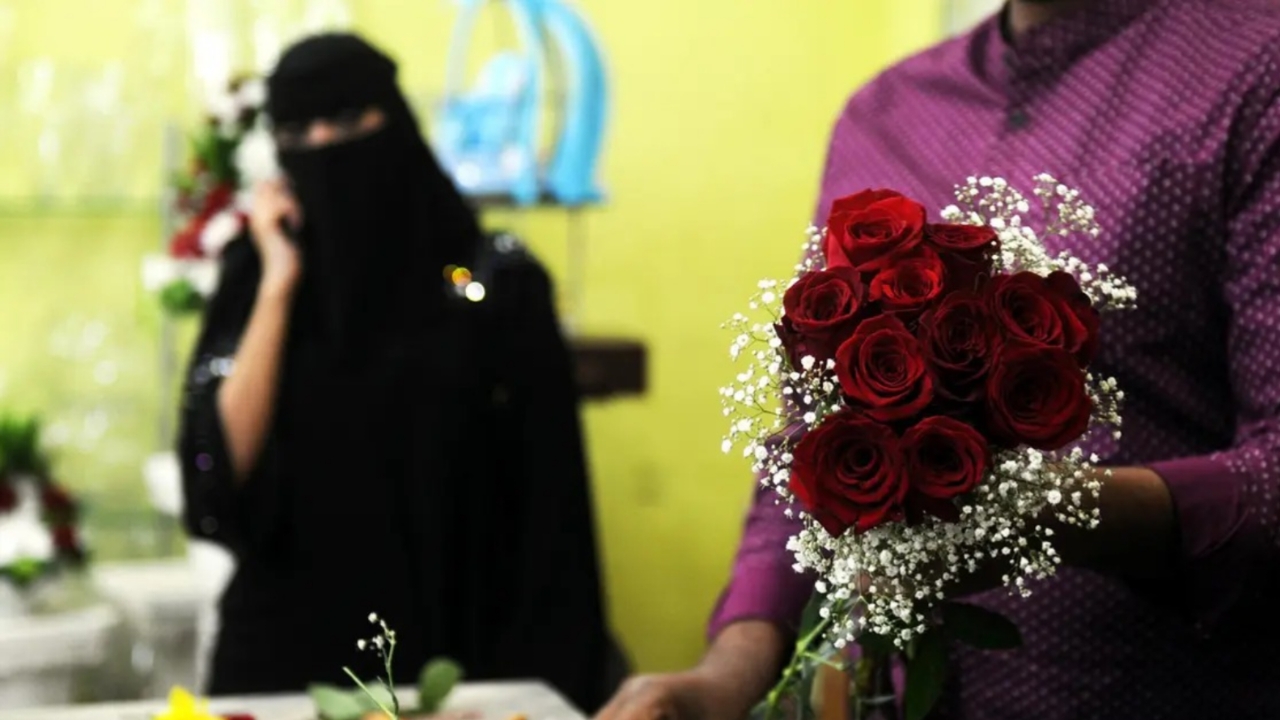Living Alone in Africa: The Silent Revolution Among Young Women
.jpeg)
Introduction: The Quiet Shift Behind Closed Doors
In cities like Nairobi, Lagos, Accra, Kigali, and Johannesburg, a quiet revolution is taking place — not on the streets, not through protests or loud declarations, but behind apartment doors and single-key locks. Young African women are choosing to live alone.
And with every rented flat, leased studio, or self-built bungalow, they are challenging generations of societal expectations.
Living alone, in many parts of Africa, is still an act soaked in silent rebellion. It defies not just economic odds, but deeply held social scripts — about femininity, safety, sexuality, and worth. Yet, it’s happening — slowly, quietly, and powerfully.
Tradition vs Independence: The Cultural Dissonance
Traditionally, in many African cultures, a woman doesn't leave her family home unless she is moving into a husband’s. The idea of a young, unmarried woman renting or owning a place alone is often met with suspicion.
She is whispered about in church pews, side-eyed by neighbors, and policed by relatives who think they are protecting her “reputation.”
Even in urbanized zones, a woman living solo is often interpreted through a moral lens. In parts of Nigeria, Ghana, and Cameroon, landlords are notorious for refusing to rent to single women, fearing they are “runs girls” — slang for sex workers or promiscuous women.
Some go as far as telling them to come with a husband before they can rent the house out.
In rural Kenya or conservative Somali communities, it’s almost unthinkable. Who watches over her? Who is responsible for her?
But independence, it seems, is no longer waiting for permission.
Why Women Are Choosing to Live Alone
1. Personal Freedom and Safety
For many, it begins with the desire for peace. A room of one's own is not just physical space — it’s emotional oxygen. Free from constant surveillance, unsolicited advice, and gendered domestic expectations, solo living offers something many African women are starved of: autonomy.
2. Delayed Marriage and Changing Family Structures
Marriage, once seen as a rite of passage into adulthood, is no longer the universal goalpost. Increasingly, African women are choosing to marry later — or not at all. According to Afrobarometer, the average age of first marriage is rising steadily across urban Africa.
This shift, coupled with greater educational attainment and career focus, has given rise to a new question: “If I can afford it, why not live on my own?”
3. Career and Economic Mobility
As more women enter the formal workforce, especially in tech, media, and finance, they’re moving to cities and earning incomes that allow them to rent, or even own, homes. South Africa leads the continent in women-owned property, with Property24 noting a sharp rise in single-female homebuyers in urban areas like Cape Town and Johannesburg.
Living alone is becoming a byproduct of economic empowerment.
The Stigma Still Persists
Despite the strides, solo-living women across Africa still navigate a minefield of cultural suspicion and double standards.
Sexuality and Safety: “What kind of woman lives alone?” is a question that often masks deeper concerns about a woman’s sexual independence. For many families, a woman alone is assumed to be vulnerable — or reckless. In Nigeria, young women in Abuja, recount stories of landlords insisting on male guarantors or impromptu inspections, assuming any female tenant must be hiding men.
Spiritual Weaponization: In religious circles, especially Christian and Muslim communities, solo women are often subtly shamed. Sermons about “submissive wives” or “Proverbs 31 women” are wielded like coded critiques. The idea that a woman can thrive outside the nuclear family model is seen as prideful or dangerous.
Community Isolation: Without the traditional family or marital context, many solo women report feeling alienated from their communities. Family gatherings, church events, and weddings become emotionally exhausting terrains, where questions like “When are you bringing someone home?”become landmines.
The Cost of Independence
Living alone doesn’t just require financial capacity; it demands emotional resilience.
Renting Alone is Expensive: In cities where housing is scarce and inflation is high, renting solo is a luxury. In Nairobi’s Kilimani, for instance, a one-bedroom apartment can cost upwards of 50,000 KES monthly — not including utilities. In Lagos, similar spaces in Lekki or Yaba attract high costs without the corresponding infrastructure.
Loneliness is Real: Independence can be isolating. For many women, especially those moving from tight-knit family homes or villages, the silence of solo living can be deafening. With few social safety nets and mental health stigma still prevalent, solitude can morph into depression if not deliberately managed.
Security Concerns: Living alone as a woman also raises valid fears. Insecurity and gender-based violence remain rampant across the continent. Home invasions, stalking, and harassment from neighbors or caretakers are not uncommon. Some women install extra locks, keep pepper spray, or avoid sharing their address.
New Forms of Sisterhood and Support
In response, women are building new kinds of community:
Women-Only Apartments and Estates: In cities like Kigali and Nairobi, real estate developers are noticing the trend. Women-only apartments or security-conscious estates that cater specifically to female tenants are emerging — sometimes complete with panic buttons, shared lounges, and networking groups.
Online Communities: Platforms like HerVest in Nigeria or SheLeadsAfrica are creating virtual sisterhoods where women can find financial literacy, mental health tips, or share living experiences.
Podcasts and Storytelling Spaces: Podcasts such as "Her Alone,""No One's Wife," and "Living Loudly" have become digital sanctuaries where African women discuss what it means to live alone unapologetically — sharing laughs, fears, and breakthroughs.
This is Not the West — and That’s the Point
It’s tempting to interpret this trend through a Western feminist lens — but this would miss the African nuance.
Living alone in Africa is not always a political statement. Sometimes it’s a silent survival mechanism. Other times, it’s an act of joy. For many, it’s about dignity, not defiance.
This is not about rejecting culture, but about expanding what is possible within it. It’s about making space for other ways of being an African woman — ways that may not involve husbands, in-laws, or traditional timelines.
“I still want to marry,” some say “But I also want to wake up in a house I chose, filled with books I love, and furniture I paid for. I don’t see why those have to be mutually exclusive.”
What the Future Holds: The Slow Redefinition of Womanhood
If the 20th century redefined African womanhood through education and access, the 21st is quietly doing so through space — the literal, physical space of one’s own.
As this solo-living trend grows, what we are witnessing is not just changing living arrangements, but the rewriting of cultural scripts:
Woman as Individual, Not Just Daughter or Wife
Security as Community, Not Just Surveillance
Maturity as Agency, Not Just Age or Marital Status
This shift may still be small in numbers, but its implications are massive. Young women choosing to live alone today may be raising daughters tomorrow who won’t need to ask for permission to own space.
Conclusion: Alone, Not Lonely
Living alone in Africa is not the story of isolation. It’s the story of self-definition. Of women who are writing new myths — about independence, identity, and possibility.
It may not be loud. It may not be on billboards or election posters. But in every quietly lit apartment, every solo meal cooked in peace, every door locked from the inside — a revolution is unfolding.
And it's not waiting for validation.
You may also like...
When Sacred Calendars Align: What a Rare Religious Overlap Can Teach Us

As Lent, Ramadan, and the Lunar calendar converge in February 2026, this short piece explores religious tolerance, commu...
Arsenal Under Fire: Arteta Defiantly Rejects 'Bottlers' Label Amid Title Race Nerves!

Mikel Arteta vehemently denies accusations of Arsenal being "bottlers" following a stumble against Wolves, which handed ...
Sensational Transfer Buzz: Casemiro Linked with Messi or Ronaldo Reunion Post-Man Utd Exit!

The latest transfer window sees major shifts as Manchester United's Casemiro draws interest from Inter Miami and Al Nass...
WBD Deal Heats Up: Netflix Co-CEO Fights for Takeover Amid DOJ Approval Claims!

Netflix co-CEO Ted Sarandos is vigorously advocating for the company's $83 billion acquisition of Warner Bros. Discovery...
KPop Demon Hunters' Stars and Songwriters Celebrate Lunar New Year Success!

Brooks Brothers and Gold House celebrated Lunar New Year with a celebrity-filled dinner in Beverly Hills, featuring rema...
Life-Saving Breakthrough: New US-Backed HIV Injection to Reach Thousands in Zimbabwe

The United States is backing a new twice-yearly HIV prevention injection, lenacapavir (LEN), for 271,000 people in Zimba...
OpenAI's Moral Crossroads: Nearly Tipped Off Police About School Shooter Threat Months Ago
ChatGPT-maker OpenAI disclosed it had identified Jesse Van Rootselaar's account for violent activities last year, prior ...
MTN Nigeria's Market Soars: Stock Hits Record High Post $6.2B Deal

MTN Nigeria's shares surged to a record high following MTN Group's $6.2 billion acquisition of IHS Towers. This strategi...






